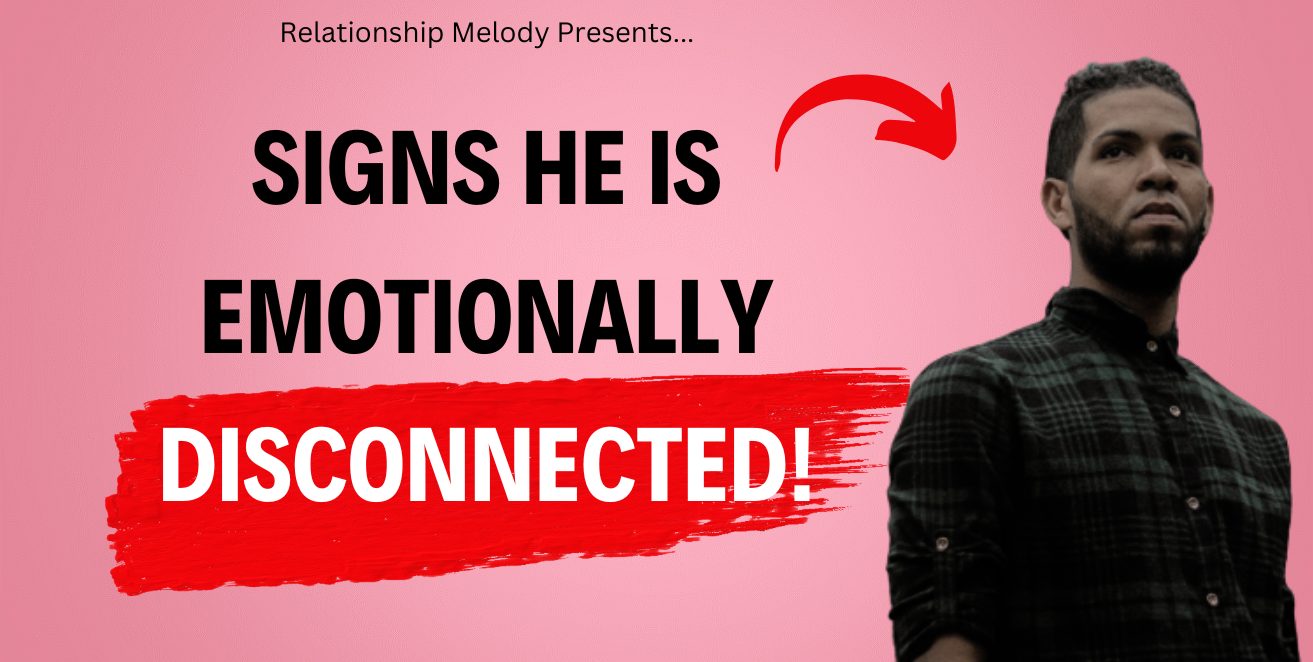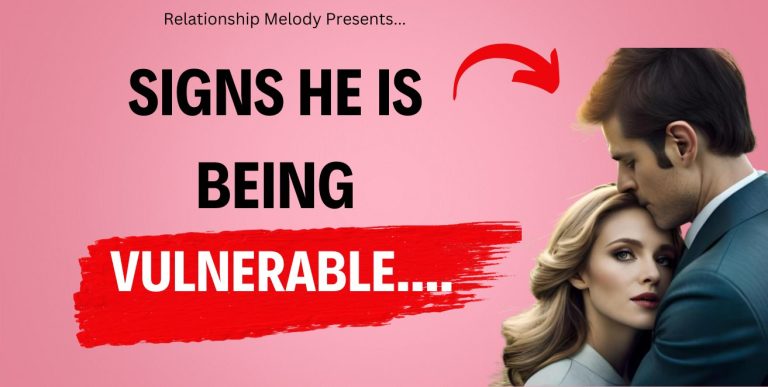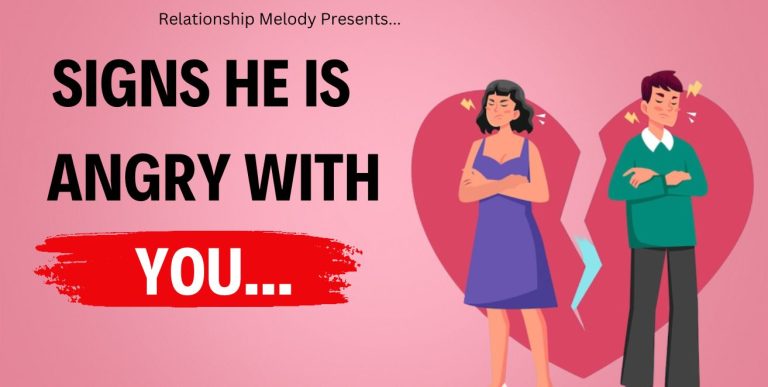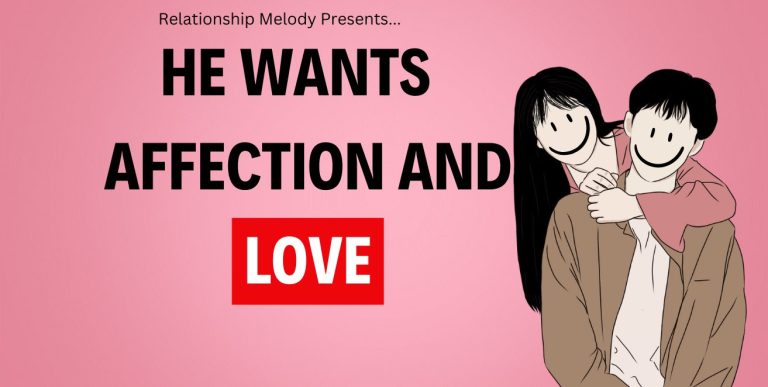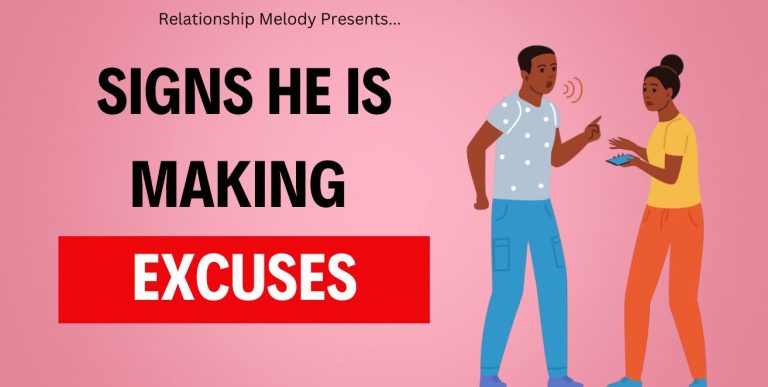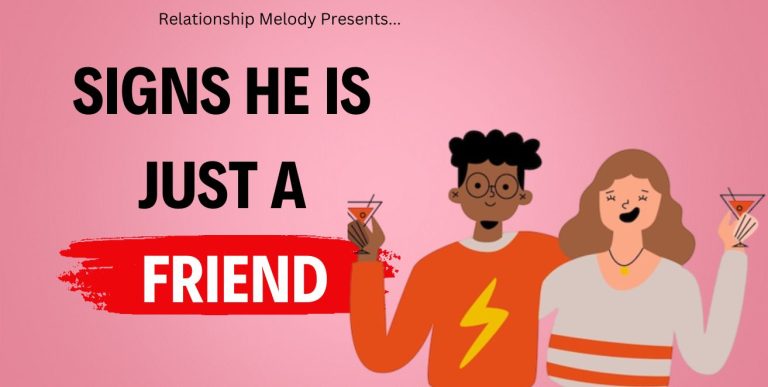25 Signs He Is Emotionally Disconnected
In the realm of relationships, emotional connection serves as a cornerstone for a healthy and fulfilling bond.
However, there are instances when one partner may exhibit signs of emotional disconnection, which can leave the other feeling unheard and unfulfilled.
Recognizing these signs is crucial for maintaining your emotional well-being and making informed decisions about your relationship.
In this blog post, we will explore 25 signs that can indicate emotional disconnection in a partner, enabling you to navigate your relationship more effectively.
25 Signs He Is Emotionally Disconnected
Here are the 25 signs.
Sign #1: He is Emotionally Unavailable To You
When a person consistently fails to engage in meaningful emotional conversations or avoids discussing personal feelings, it may be a sign that he is emotionally unavailable to you.
He may dodge questions about his emotions or offer vague responses, leaving you feeling disconnected and unsupported.
Sign #2: Lack of Empathy or Understanding
A partner who consistently demonstrates a lack of empathy or understanding toward your emotional needs may be emotionally disconnected.
He may minimize or dismiss your feelings, making you question the value of your emotions and leaving you feeling isolated.
Sign #3: Avoidance of Intimacy
If your partner regularly avoids physical or emotional intimacy, it could be a sign of emotional disconnection.
He might recoil from affectionate gestures or avoid deep conversations, making it challenging to establish a genuine emotional bond.
Sign #4: Inconsistent Communication
When communication is sporadic or limited to surface-level topics, it can indicate emotional disconnection.
If your partner consistently fails to share his thoughts, fears, or dreams with you, it may suggest a lack of emotional investment.
Sign #5: Emotional Shut-Down
If your partner shuts down emotionally during conflict or challenging conversations, refusing to engage or provide support, it signifies emotional disconnection.
This behavior can leave you feeling unheard and emotionally abandoned.
Sign #6: Lack of Interest in Your Life
A partner who demonstrates disinterest in your life or fails to actively participate in your accomplishments, dreams, or challenges may be emotionally disconnected.
He may not ask about your day or display genuine curiosity about your experiences, leading to a sense of emotional distance.
Sign #7: Frequent Mood Swings
Emotional disconnection can manifest through frequent mood swings or emotional instability.
Your partner might display extreme emotional reactions or suddenly withdraw without clear reasons, leaving you feeling uncertain and emotionally neglected.
Sign #8: Minimal Physical Affection
A lack of physical affection, such as hugging, kissing, or holding hands, can be indicative of emotional disconnection.
Your partner may refrain from initiating or reciprocating physical touch, leading to a sense of emotional distance and unmet needs.
Sign #9: Disregard for Your Emotional Well-being
If your partner consistently disregards your emotional well-being by engaging in behaviors that knowingly hurt or upset you, it suggests emotional disconnection.
He may dismiss your concerns or act in ways that make you question the importance of your feelings.
Sign #10: Difficulty Expressing Vulnerability
Emotionally disconnected individuals often struggle to express vulnerability. Your partner might have difficulty sharing his fears, insecurities, or deeper emotions, creating a barrier to building a genuine emotional connection.
Sign #11: Frequent Criticism or Judgment
Constant criticism or judgment towards your thoughts, actions, or emotions can indicate emotional disconnection.
Your partner may undermine your confidence or belittle your feelings, leading to a diminished sense of emotional security.
Sign #12: Lack of Active Listening
If your partner consistently fails to actively listen to you, interrupts you, or dismisses your thoughts and opinions, it suggests emotional disconnection.
He may appear disinterested or preoccupied, leaving you feeling unheard and invalidated.
Sign #13: Unwillingness to Compromise
An emotionally disconnected partner may display significant resistance to compromise or find solutions during conflicts.
This reluctance to work together or prioritize the relationship’s emotional well-being can create further emotional distance.
Sign #14: Emotional Secrecy
Secrecy regarding emotions or important aspects of one’s life can indicate emotional disconnection.
Your partner may avoid sharing personal thoughts, experiences, or feelings, creating a barrier to developing a deeper emotional connection.
Sign #15: Lack of Support During Difficult Times
During challenging moments, an emotionally disconnected partner may fail to provide the necessary emotional support.
He may be absent or unsympathetic, leaving you feeling alone and emotionally disconnected.
Sign #16: Inability to Apologize Sincerely
An emotionally disconnected partner might struggle with offering sincere apologies.
He may be dismissive, deflect blame, or offer insincere apologies, undermining the emotional trust required for a healthy relationship.
Sign #17: Unresponsiveness to Emotional Cues
When your partner consistently fails to respond to your emotional cues or non-verbal signals, it suggests emotional disconnection.
He may not notice or disregard your attempts to communicate your emotional needs, leading to feelings of loneliness.
Sign #18: Lack of Curiosity About Your Emotional World
Emotionally disconnected partners often lack curiosity about your emotional world.
They may not inquire about your feelings, experiences, or perspectives, creating a sense of emotional neglect and detachment.
Sign #19: Difficulty Showing Affection in Public
An emotionally disconnected partner may hesitate to show affection in public, making it challenging to establish a sense of emotional intimacy.
He might be uncomfortable with public displays of affection, hindering emotional connection.
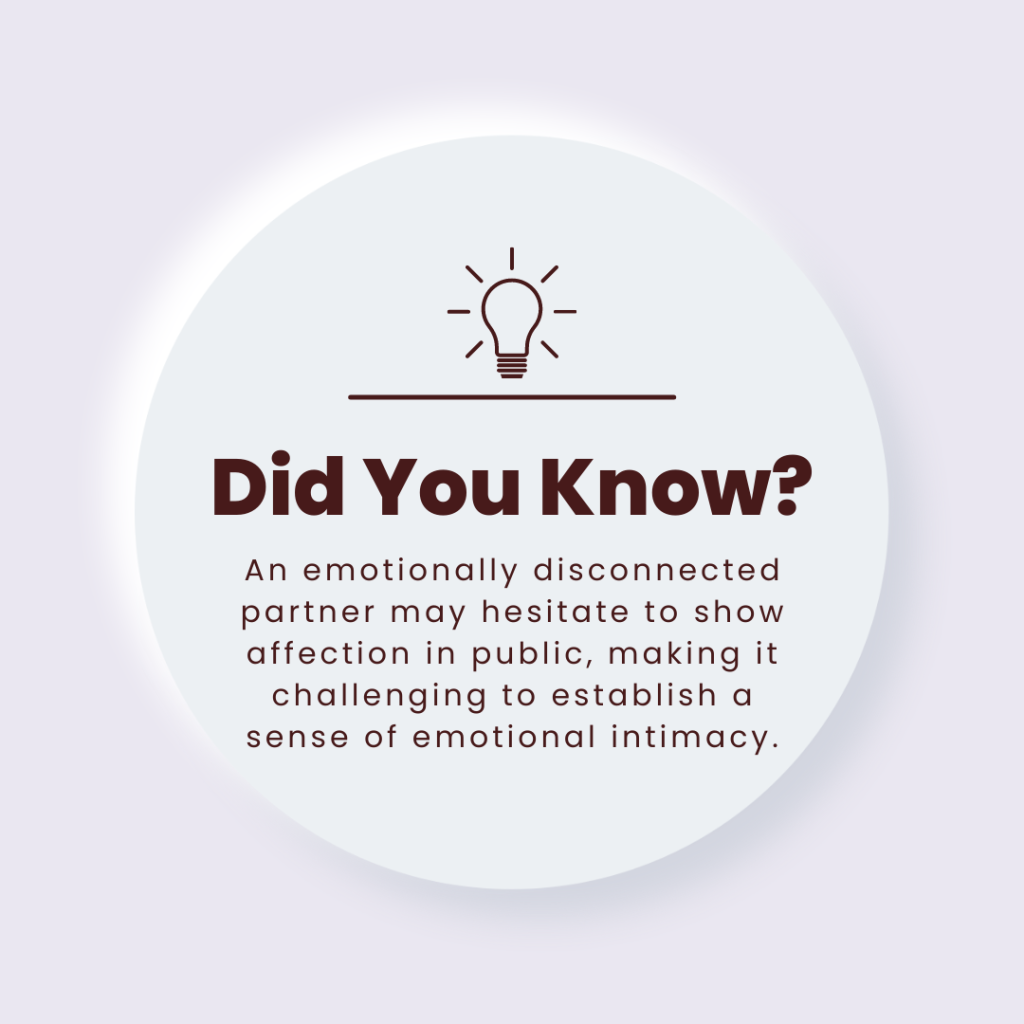
Sign #20: Emotional Stonewalling
Stonewalling, a tactic where a partner withdraws emotionally and refuses to engage, can signify emotional disconnection.
He may become unresponsive, avoid eye contact, or refuse to communicate, leaving you feeling helpless and emotionally disconnected.
Sign #21: Lack of Curiosity About Your Emotional Growth
A partner who displays little interest in your emotional growth or personal development may be emotionally disconnected.
He may not inquire about your goals, aspirations, or emotional progress, leading to a sense of stagnation in the relationship.
Sign #22: Avoidance of Conflict Resolution
Emotionally disconnected individuals often avoid resolving conflicts or addressing underlying issues.
Your partner may retreat from conflict or refuse to engage in productive discussions, perpetuating emotional disconnection.
Sign #23: Emotional Disengagement During Shared Activities
If your partner consistently appears emotionally disengaged during shared activities or outings, it suggests a lack of emotional connection.
He may appear bored, distracted, or disinterested, leaving you feeling alone and unfulfilled.
Sign #24: Resistance to Seeking Help or Therapy
An emotionally disconnected partner may resist seeking help or participating in therapy to address relationship issues.
This resistance can hinder emotional growth and the possibility of establishing a deeper emotional connection.
Sign #25: Consistent Disregard for Relationship Boundaries
When a partner consistently disregards your relationship boundaries, it indicates emotional disconnection.
He may violate your trust, engage in secretive behaviors, or fail to respect your emotional and physical boundaries.
Read more like this: Signs he is emotionally distant
Conclusion
Recognizing the signs of emotional disconnection is vital for understanding the dynamics of your relationship and making informed decisions about your emotional well-being.
If you identify these signs in your partner, it is crucial to address the issue openly and honestly, seeking professional help if necessary.
Remember that emotional connection is the foundation of a healthy relationship, and understanding the warning signs can empower you to navigate your journey toward emotional fulfillment.
Liked Our Article? Feel Free To Support Us
Our Patreon Page: https://www.patreon.com/RelationshipMelody
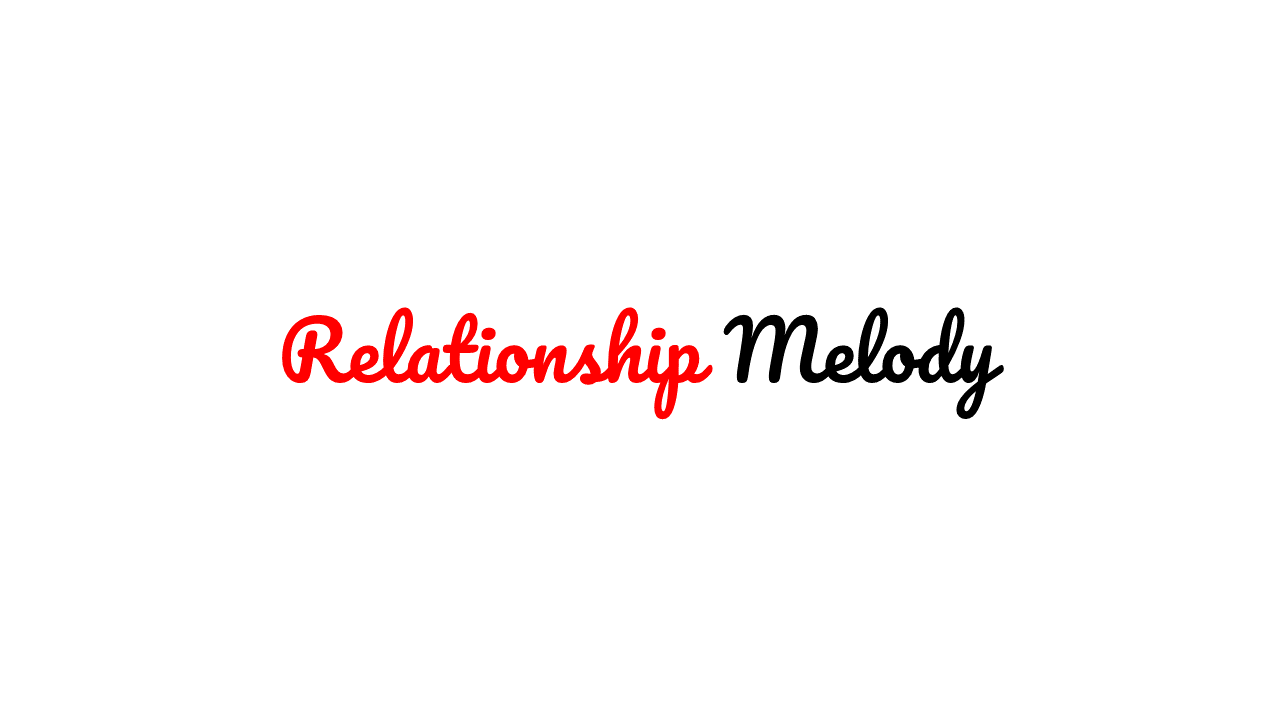
Welcome to Relationship Melody! Our website is dedicated to all things on relationships, dating, and love! We are passionate about helping you navigate the ups and downs of love, and our goal is to provide you with valuable insights and information that will make your journey toward a fulfilling relationship smoother and more enjoyable.

